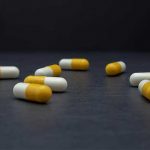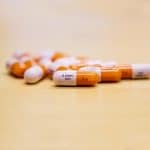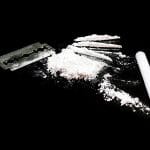- Stimulant Overdose Awareness
- Signs & Symptoms Of Overdoses
- Fatal Stimulant Overdose
- Risk Factors
- Treating Stimulant Overdose
Many different psychoactive substances can be misused to get a person high or inebriated, ranging from legal substances like alcohol to prescription-only substances like opioid painkillers and illicit drugs like methamphetamine, cocaine, or heroin.
Any of these drugs can cause overdose symptoms if taken in excess, with many, including stimulant drugs, or uppers, causing serious, life-threatening overdose effects.
Stimulant Overdose Awareness
In 2020, approximately 91,800 Americans died from drug overdose, according to information published by the National Institute for Drug Abuse.
The majority of these deaths, approximately 68,600, were related to opioid narcotics like heroin, fentanyl, and oxycodone.
However, a significant and growing minority were linked to stimulant drugs, including illicit drugs like cocaine and methamphetamine, and prescription stimulants like Adderall or Ritalin that are prescribed to treat attention-deficit hyperactivity disorder (ADHD).
Because stimulant drugs, also called psychostimulants, cause overdoses less often than opioids, and because non-fatal stimulant overdoses can sometimes go unrecognized, the public tends to be less aware of this type of overdose, its symptoms, and its hazards.
Signs & Symptoms Of Stimulant Overdoses
By definition, stimulant drugs are drugs that increase central nervous system (CNS) activity, which in turn ramps up physical and mental activity throughout the body.
This is in contrast with opioid overdoses, which slow and suppresses CNS functioning and may interfere with a person’s ability to breathe.
In the case of a stimulant overdose, sometimes also called overamping, the escalating effects of the drug may become too severe, throwing off the body’s internal balance and impacting a person’s physical and mental functioning.
Physical signs of a stimulant overdose can include:
- chest pain
- heart palpitations
- high blood pressure
- elevated heart rate
- elevated body temperature
- nausea and vomiting
- sweating
- muscle spasms or convulsions
- abnormal breathing or hyperventilation
- dilated/enlarged pupils
- headache
- passing out
- difficulty sleeping
Mental/behavioral signs of a stimulant overdose may include:
- rapid speaking
- compulsive or repetitive behaviors
- agitation
- aggression
- hypervigilance
- confusion
- delirium
- panic
- psychosis, including hallucinations, paranoid delusions, and bizarre behavior
- suicidal thoughts or impulses
Fatal Stimulant Overdose
Stimulant overdoses can range from minor, uncomfortable events, to severe or even fatal medical emergencies.
Causes of death in these situations are likely related to the cardiovascular system, as stimulant overdoses may push heart and lung function to the point of failure, resulting in heart attack, stroke, hyperthermia, dehydration, or sudden death.
Even if a severe stimulant overdose is not fatal, it can cause lasting or permanent effects as the overdose damages muscle tissue, the heart or other organs, and an individual’s mind, memory, and mental health.
Risk Factors For Stimulant Overdose
A variety of different factors increase your risk of overdosing on stimulant drugs or medications, including:
- stimulant use via injection, smoking, or snorting, as these methods of ingestion rapidly deliver the full dose of the medication into the body
- using stimulant drugs with other common drugs of abuse, including other stimulant drugs, alcohol, and opioids, as any polydrug abuse increases your risk of death due to push-pull reactions and physiological stress
- using stimulant drugs if you have pre-existing medical conditions, especially heart conditions, respiratory conditions, or certain mental disorders
- switching to a different, more potent substance or taking your regular dose after a period of abstinence
Treating Stimulant Overdose
Unfortunately, the opioid overdose antidote drug naloxone, sold under the brand name Narcan, will not reverse a stimulant overdose (though it also will not harm the victim if administered).
If you suspect an overdose has occurred, or if you are around someone who is having severe chest pain, hallucinations, fever/high body temperature, seizures, or who has lost consciousness, contact your local emergency department as soon as possible.
Until help arrives you should stay with the victim, place them on their side in the recovery position if they lose consciousness, try to cool them down if they are overheating, and provide CPR and use an AED if they stop breathing.
Once professionals arrive and transport the victim to the hospital they will provide advanced care, potentially including:
- diagnostic tests
- benzodiazepine sedatives
- intravenous fluids and electrolytes
- treatment for secondary conditions including high blood pressure, seizures, or abnormal heart activity
- life support care or resuscitation
Stimulant Overdose Prevention
While overdoses can occur for a variety of reasons, many of which may be entirely accidental, they are likely linked with intentional acts of substance abuse, often as part of a substance use disorder/drug addiction.
Because of this, the best way to avoid an overdose is to address drug addiction through professional addiction treatment services and interventions, including:
- medical detoxification
- inpatient or residential treatment
- outpatient care
- behavioral health therapies
- individual or group counseling
- employment counseling
- aftercare support
If you or someone you love struggles with drug use or addiction, you may not know where to turn. And the longer the abuse continues, the greater the risk of lasting harm, including overdose.
But help is available. Contact Northeast Addictions Treatment Center today to learn more.
Sources
Written by
Northeast Addition Editorial Team
©2024 Northeast Addition Center | All Rights Reserved
This page does not provide medical advice.



